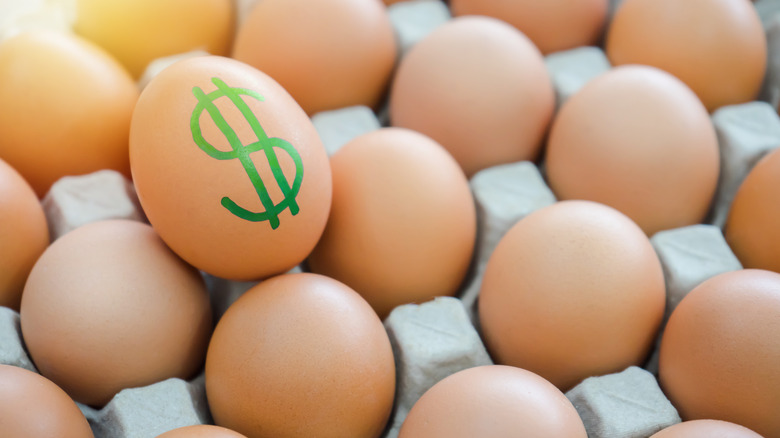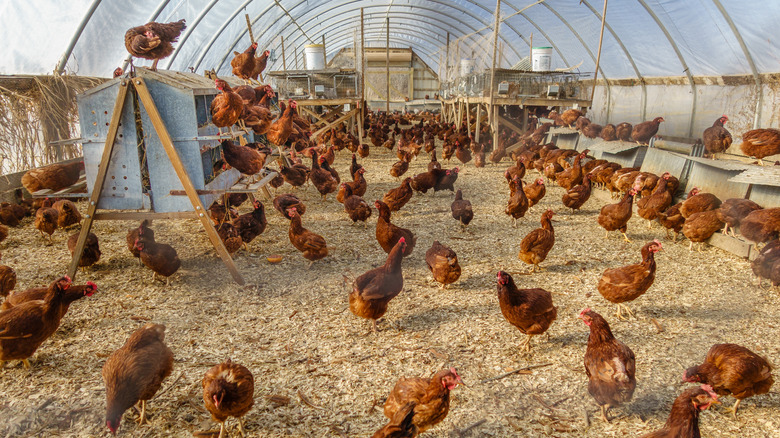Egg Prices In California Have Seen A Massive Increase
In January 2022, Californians could walk into a grocery store and pay less than $2.50 for a carton of a dozen large eggs. A year later, those same shoppers are paying over $7.00 for the same product, according to the Los Angeles Times. The staggering price increase is hitting individuals and families who are already reeling from the effects of inflation, with the prices of groceries and gasoline increasing at astonishing rates. SF Gate reports that there was upwards of a 49% increase in egg prices nationwide in 2022.
According to Statista, Americans ate 286.5 eggs per person in 2020, with that number expected to reach 288.1 in 2022. These numbers suggest that Americans eat eggs almost daily during any given year, suggesting that most people regularly purchase eggs and are, thus, being affected by the alarming egg price hikes.
Surprisingly, the reason for the issue is not necessarily inflation, but rather, a sudden shortage in egg supply. CBS New York reports that a massive bird flu broke out in early 2022 and continued throughout the year, affecting roughly 57 million birds including millions of egg-laying hens.
The decrease in eggs left consumers clamoring for whatever type and brand they could find, especially during the baking and entertaining-heavy holiday season, leaving store shelves empty, per SF Gate. But Californians, unfortunately, have another factor against them which has led to their particularly high egg prices, and it was, ironically, meant for good.
Cage-free only
In 2018 California passed Proposition 12, an initiative that banned the production and sale of meat and eggs from animals raised in cages, per Cage Free Laws. It was a move designed to protect the welfare of food-bearing animals and, in turn, required all eggs sold in California to come from cage-free hens beginning January 1, 2022. With cage-free eggs making up only about 30% of the egg market and over 5 million of those hens lost during the bird flu, there simply aren't enough eggs to supply the California market, per Los Angeles Times.
Among those being affected the most are small businesses that utilize a lot of eggs, such as bakeries, and WIC recipients — low-income women and children who receive groceries, goods, and services through The Special Supplemental Nutrition Program for Women, Infants, and Children. The one million California WIC recipients receive vouchers for cartons of a dozen large, white eggs but have found those cartons gone from supermarket shelves. Despite this, the vouchers do not cover any other type of eggs like jumbo size or even brown colored eggs.
To make matters worse, many people cannot afford to go egg-hunting from store to store due to the exorbitant gas prices, per Los Angeles Times. Fortunately, CBS New York reports the USDA foresees egg prices decreasing. But it will take some time for cage-free hens to replenish the demands of those in the Golden State.

